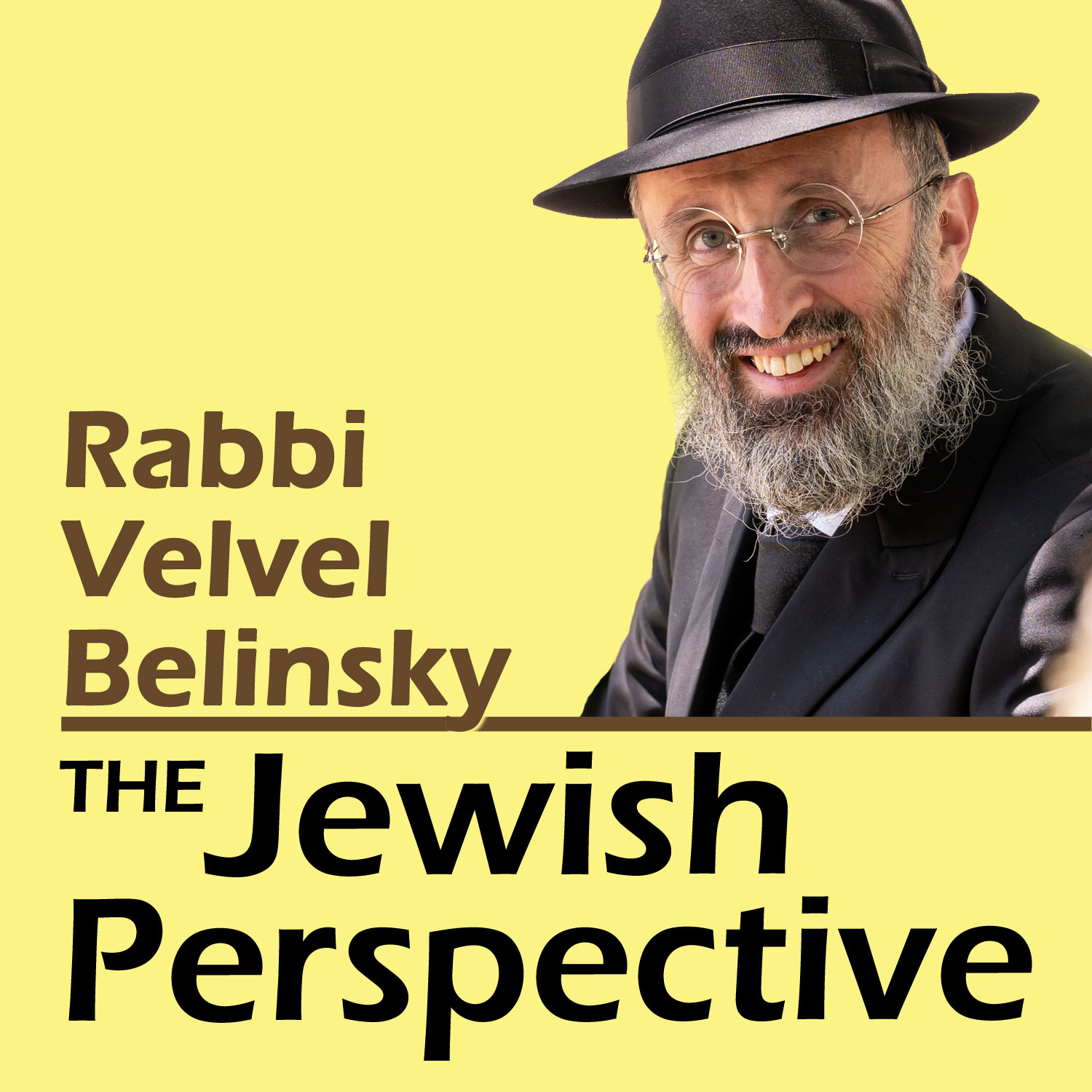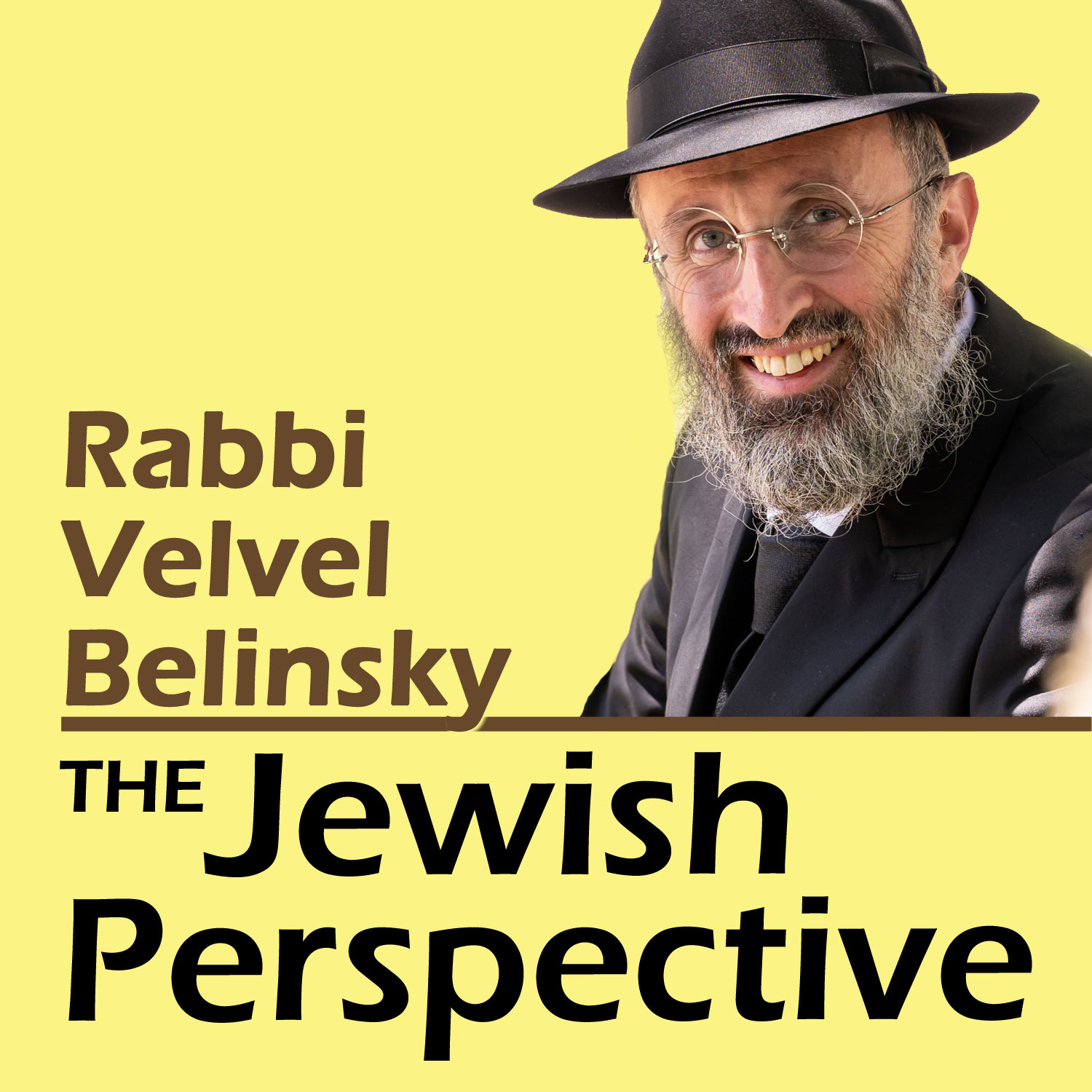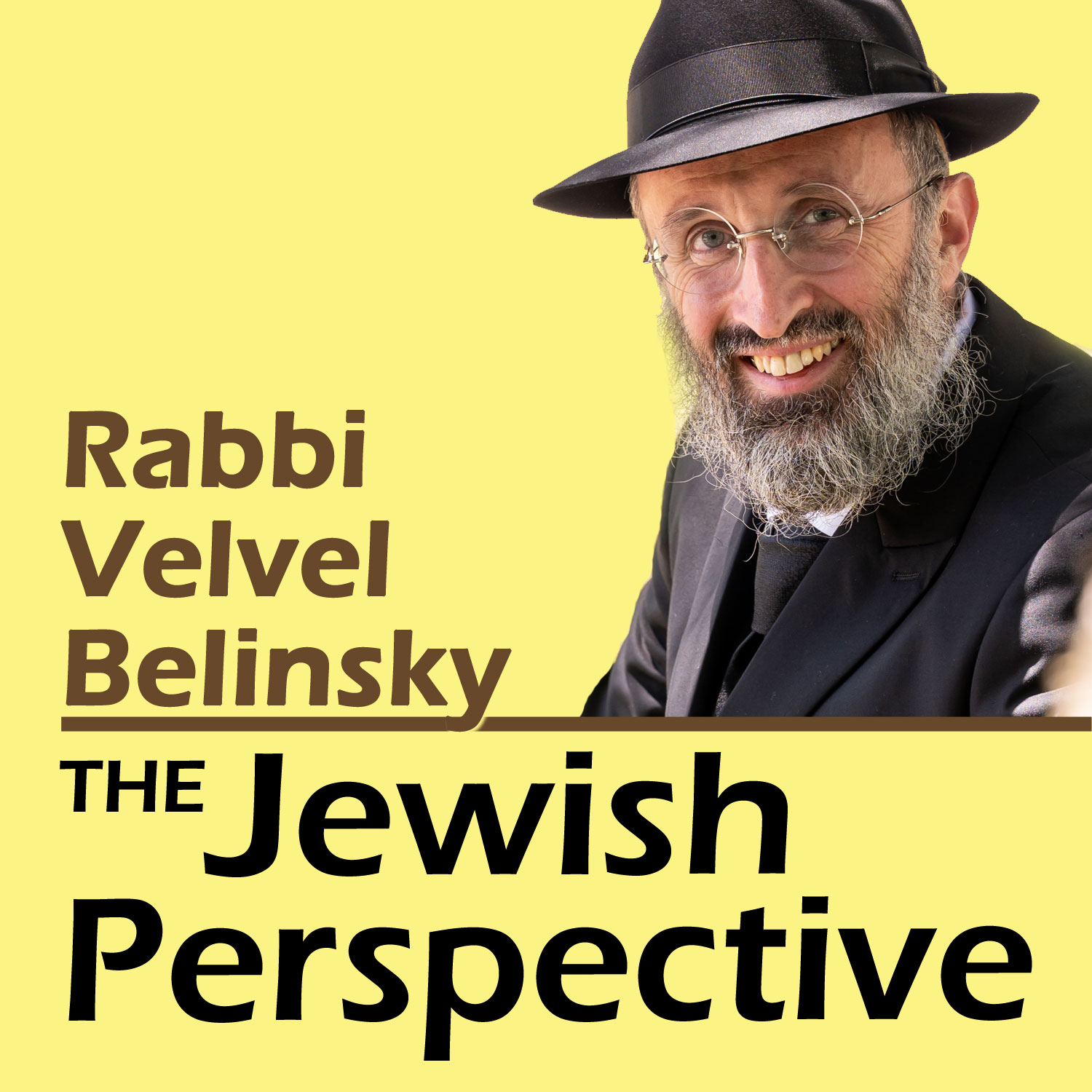Episode Transcript
[00:00:00] Speaker A: There's a strange story in the Tractate of Sahim.
One of the rabbis of Talmud, Rabbi Chenchokal, he is leaving yeshiva. He's leaving his study hall academy to see how the crop is doing in the fields.
And when he comes back, the sages ask him, nu, how is the wheat?
And he says, the barley is doing very well.
Obviously. What is he saying? He didn't want to say that something is doing poorly. He didn't want to say negative things. So instead of saying negative things, he.
[00:00:41] Speaker B: Said that something else is positive.
So he diverted the topic, and this way the rabbis would understand that probably.
[00:00:49] Speaker A: The wheat is not doing very well.
So the rabbis look at him, and.
[00:00:55] Speaker B: The rabbis say, barley is doing well. Well, go tell it to horses and donkeys.
[00:01:00] Speaker A: Don't tell it to us, because we know barley is a food of animals and wheat is food of men, of humans.
Talmud asks, so what should have he said he didn't want to say something negative. So what should have he said?
[00:01:17] Speaker B: Talmud says he should have replied, the wheat was doing good last year.
In other words, he should have kept the topic on the wheat.
Just, you should have said it was doing good last year. They would understand that this year it's.
[00:01:30] Speaker A: Not doing as well.
Very strange story.
[00:01:33] Speaker B: First of all, what do rabbis have.
[00:01:35] Speaker A: Business walking on fields and inquiring about the crop? Do they really care? It's not their business.
Second of all, you could have probably.
[00:01:43] Speaker B: Asked a villager to tell him he doesn't have to travel all the way there to see it for himself.
[00:01:48] Speaker A: And then when he comes back, the other rabbis are inquiring about it. It's a very strange story.
So there is a spiritual lesson from this story, and it is explained by the father of the Rebbe, Rabbi Yitzchak. He was a Kabbalist, and he translated many strange or unclear passages in the Talmud, explaining them in kabbalistic terms. And then they make much more sense. So we have, as you already know, two souls. We have a godly soul and our animalistic soul.
Our animalistic soul is an animal.
It wants everything that animal wants. It does everything that animal does.
And our godly soul is a part of God.
I want to ask you a question. Which one is primary and which one is secondary?
Well, when we are born with very dominant animalistic soul, and our godly soul is only slowly entering into us, and it completes this process, by the time we are bar or Bat Mitzvah, that's what we are celebrating. You probably know that.
So when we are born, look at.
[00:03:06] Speaker B: The child he behaves like an animal. He wants something, he grabs it.
He's upset, he's going to throw a tantrum.
He has his animalistic soul fully there, fully developed, fully expressed. His godly soul still to be seen.
When we are born, our animalistic soul is primary.
And our godly soul only comes in later then throughout our lives.
[00:03:32] Speaker A: What do we usually use in our daily life? It is an emistic soul that is much more pronounced.
[00:03:39] Speaker B: That's the soul we feel.
How often do you feel that you want to pray or do a mitzvah?
Unfortunately, most of the time we don't. But how often do you feel that you are hungry when you are hungry? Every single time.
So our animusic soul is primary, and that is established in the Torah in several places. We could see it how it's always described that way. And in the Book of Tanya, the.
[00:04:02] Speaker A: Primary book of Hasidus, the Altar Rebbe.
[00:04:04] Speaker B: Specifically says, and the second soul of every human is our godly soul.
[00:04:09] Speaker A: It's the second soul.
[00:04:11] Speaker B: And Dalirebi is starting the entire Book of Tanya with describing our animalistic soul because it's there first.
[00:04:19] Speaker A: Now, if this is the case, then in this week's Torah portion we have a difficulty because the Torah is listing all of the fruit that the land of Israel is going to be blessed with. And it lists barley second and wheat first.
One Second, wheat is the food of the human.
Barley is the food of an animal.
So if our animalistic self is coming first, the Torah should be consistent.
[00:04:47] Speaker B: In the Torah, everything is precise. There's nothing in Torah which is there just because everything has to be precise. If our animalistic self is first and barley should be first, because barley is described in the Torah as animal feed.
[00:05:00] Speaker A: It'S the other way around.
So the story is going to answer this question.
Rabbi Yochan Chakaka is leaving the Academy of Sages leaving Yeshiva to see how regular people, how the villagers of the land of Israel are taking care of their animal soul, how they're living, how.
[00:05:29] Speaker B: They'Re using their godly soul.
He wants to know how is their life.
[00:05:35] Speaker A: That's why he left. He didn't leave to just check the crop.
He is a rabbi and he's checking how is the spiritual life of simple villagers.
And our animalistic soul is compared to an animal. It needs animal feed. Our godly soul is compared to a human and needs human feed. Because what makes us human is our godly soul.
[00:05:56] Speaker B: If we would have only animal soul, we would be like smart monkeys.
[00:06:00] Speaker A: By the way, modern biology considers humans Just smart and developed monkeys.
That's why they believe that there are only three categories. There is inanimate nature, there are plants and vegetation, and then there are animals and humans.
[00:06:15] Speaker B: Humans are part of the animal kingdom because we are just smart monkeys and because biology cannot trace, cannot pinpoint our godly soul. That's why it says it. Because without godly soul, we are just smart monkeys. We are animals who are very well trained.
[00:06:31] Speaker A: That's it.
[00:06:32] Speaker B: So what makes us human is our godly soul.
[00:06:35] Speaker A: So the rabbi is going to see, how is the wheat doing?
[00:06:40] Speaker B: Which means, how is their godly soul doing?
[00:06:43] Speaker A: These are villagers.
When the rabbi spends the entire day.
[00:06:46] Speaker B: Learning Torah in yeshiva, in the Torah Academy, his godly soul is revealed in Shining 24:7.
But when you have a villager, he has to work hard.
His godly soul is very rarely shows.
[00:07:01] Speaker A: Through, it rarely shines.
So the rabbi didn't want to say that these villagers, they're so such a bad people.
[00:07:12] Speaker B: He understands that they're not meant to be sitting and learning Torah. If they will be sitting and learning Torah all day, these rabbis wouldn't have anything to eat.
Then ask him, how is their godly soul doing? How is it showing in their daily routine?
He didn't feel it was an appropriate question.
So he says, barley is doing well.
[00:07:35] Speaker A: What is he saying? He's saying, don't ask me about their godly soul.
[00:07:39] Speaker B: It's not what they preoccupied 24 7.
But I have to tell you something.
The way they refine their animal soul, the way they work on their animal soul, this is what we need to look at. And that they're doing great.
They are working on their animal soul, which is a primary soul of a person. That's what we need to do. We need to focus our day, our work, our effort on making sure our animalistic soul is properly trained, our animal is tamed.
[00:08:11] Speaker A: Now the rabbis are replying to him.
[00:08:14] Speaker B: Tell this to horses and donkeys.
[00:08:17] Speaker A: What does it mean?
You would think that if rabbis are trying to say that barley is an animal feed, that's why it should be only the concern of the animals. Horse donkeys are not kosher animals.
[00:08:28] Speaker B: They should have said, tell it to cows and to sheep.
[00:08:32] Speaker A: But they don't say it. They say, tell to donkeys and, and to horses. What are they implying?
They're implying, wow, they are doing such a good job taming their animals who are kosher animals.
[00:08:47] Speaker B: So now go and tell them to tame their not kosher animals also.
[00:08:53] Speaker A: What does it mean?
[00:08:54] Speaker B: Our animalistic souls have different parts Some parts are kosher, some parts are not kosher. Some parts of our animalistic souls want things which are permitted. They are not necessarily godly. There's nothing good about them, but there's nothing bad about them. Also, they're permitted. I want to have a nice kosher stake. It's great.
I'm not violating any laws if I'm eating. It's my animalistic desire. It's part of my animal soul, but it's kosher, so it's great.
[00:09:21] Speaker A: So the rabbi is saying, wow, they have managed to train and tame their kosher desires.
[00:09:28] Speaker B: Tell this to horses and to donkeys. Tell to the not kosher. Now, once they master that, go and try to train your not kosher desires.
[00:09:38] Speaker A: Next level, Rabbi Moshe Katlarsky, who unfortunately passed away recently. He was the chairman of Merkaz Leon Ychinuch, the organization which is in charge of all the chabad Shlochim, chabad rabbis all over the world.
He was a person of a very eccentric sense of humor. And when somebody would celebrate their birthday, he would commonly say, may you see.
[00:10:02] Speaker B: The fulfillment of all of your desires.
[00:10:05] Speaker A: Wait. Not all of them. Only the ones which are permitted by the Jewish law.
[00:10:09] Speaker B: So we sometimes have desires which are permitted by the Jewish law. Sometimes we have desires that are not.
[00:10:14] Speaker A: Permitted by the Jewish law.
[00:10:15] Speaker B: So these sages say, wow, they've done such a good job training their kosher desires. Great.
Tell them to move on. Tell them to conquer their not kosher desires. They should not have any of those.
[00:10:28] Speaker A: So, so far, so good.
[00:10:30] Speaker B: Now we understand the spiritual connotation of the discussion between those rabbis.
[00:10:35] Speaker A: But what does the Talmud conclude this whole discussion with?
[00:10:40] Speaker B: One second.
[00:10:41] Speaker A: So what should Rabbi Yehudah Hakkaka say? What should have he said?
[00:10:44] Speaker B: If he shouldn't have said about barley, what should have he replied?
So Talmud says he should have replied that last year the wheat was good.
[00:10:55] Speaker A: What does it mean? It means that today these villagers are successfully working on their animalistic souls. And they're doing great job. They're training them. You know, we all have an animal aside of us. We just need to keep it tamed and everything's going to be good.
[00:11:14] Speaker B: And they're doing this job perfectly.
[00:11:17] Speaker A: But this is one thing that you need to remember.
[00:11:19] Speaker B: Even though you are spending your day.
[00:11:21] Speaker A: Today, right now, you are spending all of your efforts trying to tame your anabolistic self, you have to remember that last year the wheat produce was very good. Which means last year means originally. That's what you come from. That's what you start with even though you are focusing now on working on your animalistic soul, you have to remember that everything starts from your godly soul.
You cannot work on your animalistic soul if you don't remember that your godly soul is the one you need to uses as a springboard. This is why when we wake up in the morning, the first thing we say, thank you God for returning my soul.
So thank you, God for returning my soul. There's the first words we are saying.
And then, then we do whatever we need to do, use restroom, get dressed. And then we start with davening, with praying. We put on filling and we pray why? That's the beginning of our day.
[00:12:23] Speaker B: Then the rest of the day we're going to be dealing with our animalistic self. The rest of the day we're going to be busy with business, clients, all of the things that we need to do, and that's what we're going to spend the rest of the time on.
But the beginning should be with the.
[00:12:40] Speaker A: Wheat, which is the feed of humans, because that's a feed of our godly soul.
[00:12:48] Speaker B: Everything starts with a godly soul. If you start your day with a godly soul, then it's going to be.
[00:12:52] Speaker A: Easier to tame your animal later on.
[00:12:55] Speaker B: And this is what the Talmud is telling us. And this is why in our Torah chapter that discusses the types of fruit.
[00:13:05] Speaker A: That the land of Israel is blessed with, it first lists wheat and then barley.
[00:13:11] Speaker B: It's true that most of our day we work with barley, we work with.
[00:13:14] Speaker A: Our animal soul, but it should start with wheat. It should start with our godly soul. That's always primary.


